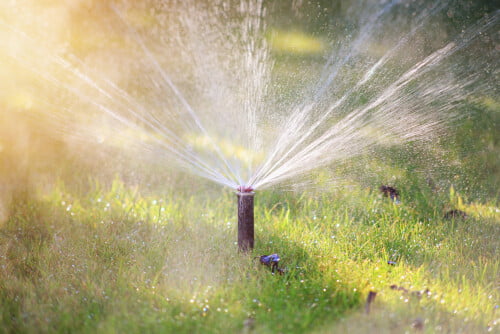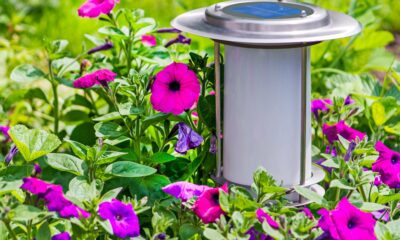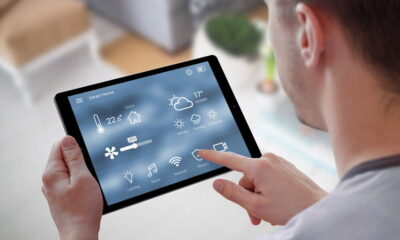

Environment
5 Reasons Why A Smart Sprinkler Controller Is A Good Green Investment
If you’ve been thinking about picking up a smart sprinkler controller, it’s time to pull the trigger. Smart & WiFi sprinkler controllers aren’t just extremely convenient and easy to use. They’re also packed full of features that are good for the environment, your bank account, and your landscaping. They’re a good green investment to consider. Here’s why it’s time to invest in a smart sprinkler controller.
1. They’re Ridiculously Easy To Use
Smart sprinkler controllers are called “smart” for a reason. Regular sprinkler controllers are notoriously hard to program and understand. Their simple screen and controls mean you could have to learn your way around an intricate system of hold, double tap, and quick tap patterns to access even the most basic functions. And if you add a new zone or want to change the timing of each zone? Forget about it.
Smart sprinkler controllers, on the other hand, make controlling your sprinklers a snap. All major manufacturers of smart sprinkler controllers offer apps for both Android and iOS that allow you to monitor water usage, manually run, disable, or alter the timing of any of your zones. Access your system from your couch, on the road, or even on vacation.
While most smart sprinkler controllers can only be operated by smart phone, some still manufacture units with screens and on-unit controls. If you like the option to control your sprinklers the old fashioned way, then be sure to do your research.
2. They Save You Money
The best kind of sprinkler system is the one you never have to touch. Most smart sprinkler controllers take care of seasonal usage changes for you by syncing with a weather service to automatically shut off when it’s raining or snowing. Some units can also be connected to wired weather sensors, in case your local weather service doesn’t reflect the weather at your home.
Some cities and water service providers also offer rebates for switching to a smart sprinkler controller, so be sure to call them before taking the plunge.
3. They Reduce Your Water Usage
According to the EPA, WaterSense labeled sprinkler controllers can save an average home nearly 7,600 gallons of water each year.
Weather based irrigation controllers not only reduce your water usage—most of them also give you interactive graphs that show you exactly how much water you have saved, zone by zone. Pair your smart sprinkler controller with soil moisture sensors for more accurate usage numbers and a more efficient watering solution.
4. They Keep Your Landscape Lush
It’s amazing just how much one change to your landscaping can alter your irrigation needs. Installing water hungry plants like irises and hibiscus can deprive your other plants of the water they need. This could mean anything from a sad, limp yard to brown spots, dead plants, and more.
By using a smart sprinkler controller to manage your watering, you’ll get more consistent watering that is also easier to update without calling in an irrigation contractor or breaking out the user’s manual.
5. They Can Be Controlled with your Voice
Geeky homeowners will be sure to appreciate that the most popular smart sprinkler controllers easily sync with Google Assistant and Amazon Alexa devices, allowing you to talk to your sprinkler system. Sure, you can talk to your old sprinkler controller too, but most of them will just ignore you.
What Are You Waiting For?
A smart sprinkler controller might not be the most exciting toy you buy this year, but they make too much sense to pass up. From the cost savings and rebates to the convenience, water saving features, and copious data that they give you, smart sprinkler controllers are brilliant little devices that make it just a little easier to keep your yard lush, happy, and healthy.


 Features11 months ago
Features11 months agoEco-Friendly Cryptocurrencies: Sustainable Investment Choices

 Energy11 months ago
Energy11 months agoThe Growing Role of Solar Panels in Ireland’s Energy Future

 Energy10 months ago
Energy10 months agoGrowth of Solar Power in Dublin: A Sustainable Revolution

 Energy10 months ago
Energy10 months agoRenewable Energy Adoption Can Combat Climate Change




























